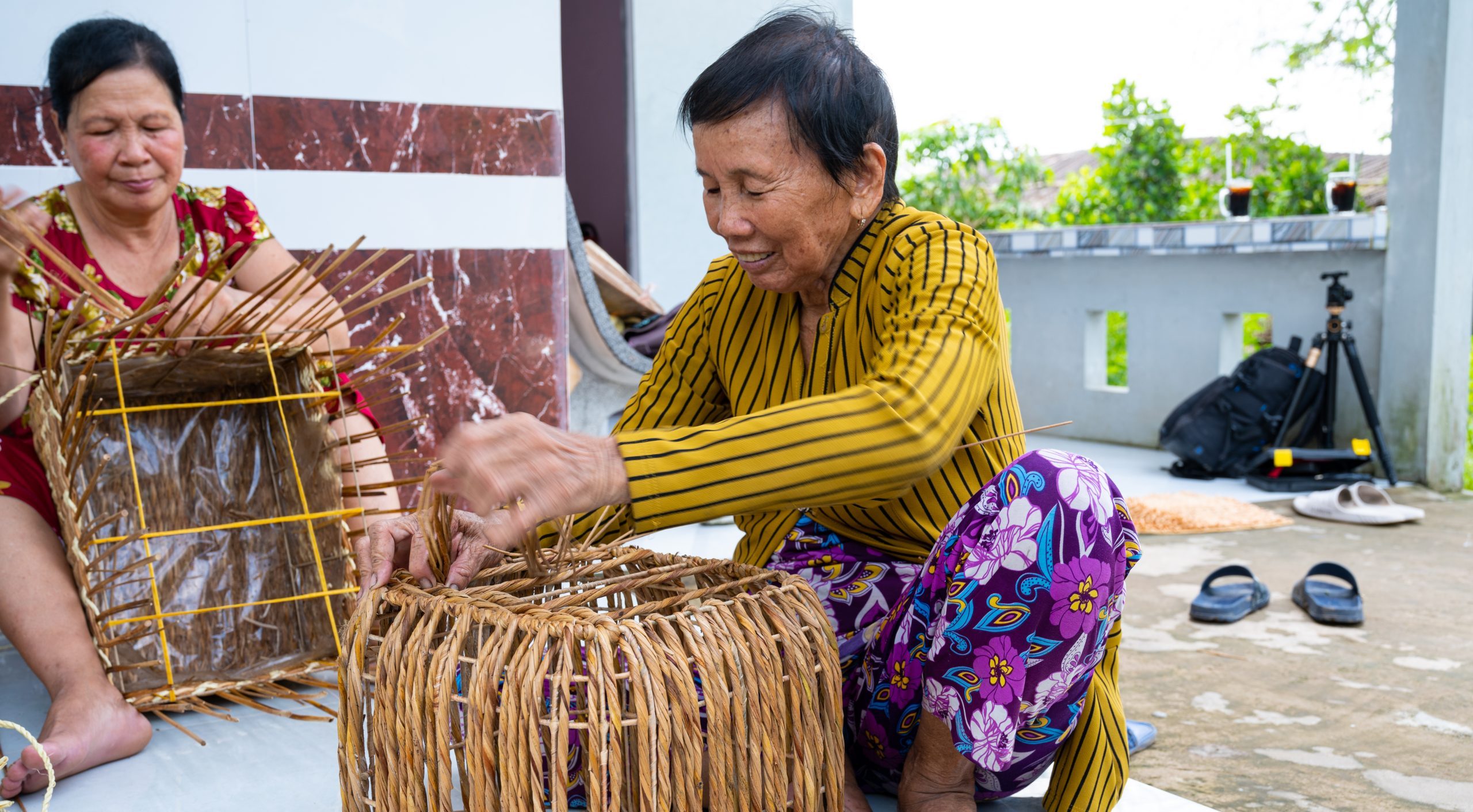
Creating sustainable livelihoods through climate-adaptive crops
51%
49%
Partner contribution
$ 550,040
DFAT contribution
$ 550,000
Total Value
$ 1,100,040
Start: November 2023 - End: November 2025

Australian Government
The Australian Department of Foreign Affairs and Trade works with international partners and other countries to tackle global challenges, increase trade and investment opportunities, protect international rules, keep our region stable and help Australians overseas.

Mekong Conservancy Foundation
The Mekong Conservancy Foundation focuses on research and problem solving in the fields of livelihood, education, environment, and natural resources to contribute to the Mekong Delta’s long-term development

Vietnam Housewares Corporation
Vietnam Housewares Corporation manufactures homeware products, specialising in handwoven natural products, furniture, and handmade ceramic goods.
A partnership that creates new economic value for local community members in the Mekong Delta by transforming climate-affected rice farms into the more sustainable bulrush crops.
Context
Agriculture and fisheries are the main livelihoods in the Mekong Delta and the region produces 50% of Vietnam’s food. While government planning and investment has been successful in supporting food security and developing export markets, the Mekong Delta is at a tipping point and is increasingly being impacted by climate change. It is estimated that sea levels will rise by 23 to 28cm by 2050, presenting a serious threat to the Mekong Delta with 40% of the region less than 30cm above sea level.
Farming practices such as triple cropping of rice and the overuse of fertilisers and pesticides are unsustainable and degrade the land. Over recent dry seasons, salinity is also penetrating increasingly further inland. Over the last decade, the Government of Vietnam has been working to restore resilience to a vulnerable and degraded ecosystem and in 2022, the Master Plan for the Mekong Delta was approved by the Prime Minister.
The Mekong Conservancy Foundation (MCF) has been researching opportunities to tackle these issues. It was identified bulrush, a natural grass species, to be a sustainable alternative as it:
- Improves water quality.
- Tolerates water with a high salt content.
- Withstands flooding and can be planted in shrimp ponds.
- Improves soil nutrients by absorbing nitrogen and phosphorous.
In addition, bulrush materials can be used to manufacture homewares, which is a growing global market for Vietnam. This creates job and training opportunities for local community members.
About the initiative
The Partnership aims to expand bulrush as a replacement crop for mono-shrimp aquaculture to improve soil and water quality and create sustainable livelihoods. This will expand the company’s model of growing bulrush to produce housewares such as baskets, which are starting to be sold to chain stores in the US, Europe and Australia, including Bunnings.
Key activities include:
- Selecting four suitable sites to grow bulrush as demonstration models.
- Developing production plans and production facilities.
- Training local communities, particularly women, to weave baskets and other products using bulrush.
- Researching opportunities to create new products to diversify the uses of raw bulrush.
- Marketing to expand into new markets.
Key contributions from partners
- The Mekong Conservancy Foundation is the lead partner for this initiative, providing the overall management, including monitoring and evaluation.
- Vietnam Housewares Corporation will oversee the homewares manufacturing business plan, including
- Australian Government is contributing catalytic funding support with gender expertise to strengthen social and commercial impacts, connection to an extensive network, capability building on how to capture report social impact, safeguards standards and practices, national and global recognition.
This partnership was selected through the BPP’s Vietnam Call for Climate Adaptation Partnerships in the Mekong Delta.
